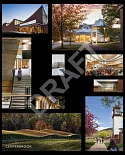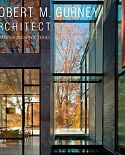Francis Palmer Smith was the principal designer of Atlanta-based Pringle and Smith, one of the leading firms of the early twentieth-century South. Smith was an academic eclectic who created
traditional, history-based architecture grounded in the teachings of the �cole des Beaux-Arts. As The Architecture of Francis Palmer Smith shows, Smith was central to the establishment
of the Beaux-Arts perspective in the South through his academic and professional career.
After studying with Paul Philippe Cret at the University of Pennsylvania, Smith moved to Atlanta in 1909 to head the new architecture program at the Georgia Institute of Technology. He would
go on to train some of the South's most significant architects, including Philip Trammell Shutze, Flippen Burge, Preston Stevens, Ed Ivey, and Lewis E. Crook Jr.
In 1922 Smith formed a partnership with Robert S. Pringle. In Atlanta, Savannah, Chattanooga, Jacksonville, Sarasota, Miami, and elsewhere, Smith built office buildings, hotels, and Art Deco
skyscrapers; buildings at Georgia Tech, the Baylor School in Chattanooga, and the Darlington School in Rome, Georgia; Gothic Revival churches; standardized bottling plants for Coca-Cola; and
houses in a range of traditional ��eriod��styles in the suburbs. Smith's love of medieval architecture culminated with his 1962 masterwork, the Cathedral of St. Philip in Atlanta. As his
career drew to a close, Modernism was establishing itself in America. Smith's own modern aesthetic was evidenced in the more populist modern of Art Deco, but he never embraced the abstract
machine aesthetic of high Modern.
Robert M. Craig details the role of history in design for Smith and his generation, who believed that architecture is an art and that ornament, cultural reference, symbolism, and tradition
communicate to clients and observers and enrich the lives of both.
This book was supported, in part, by generous grants from the Graham Foundation for Advanced Studies in the Fine Arts and the Georgia Tech Foundation, Inc.





















